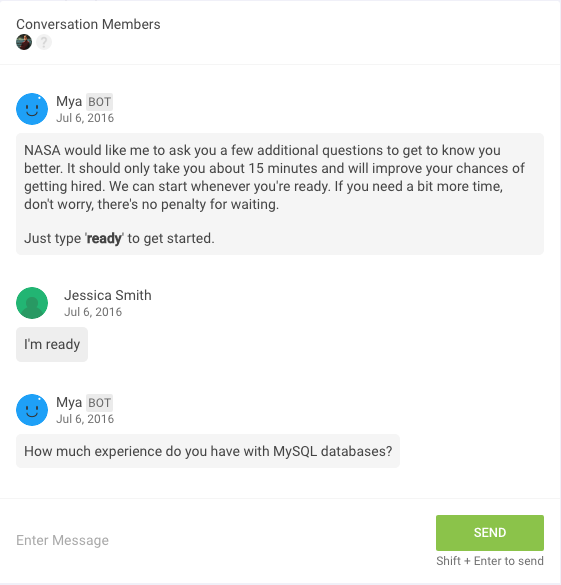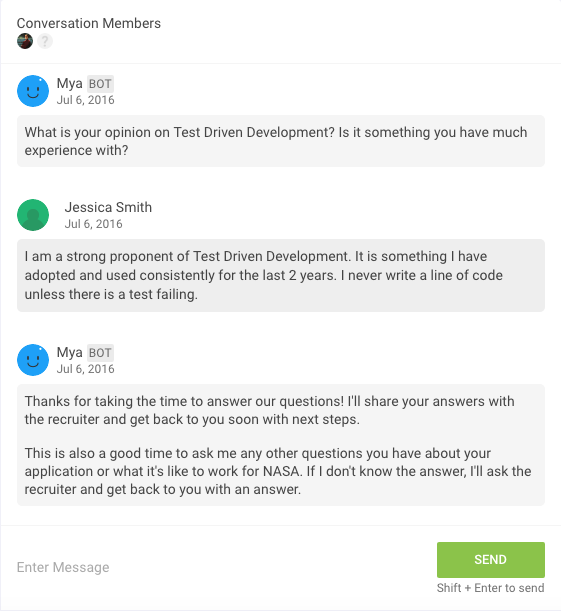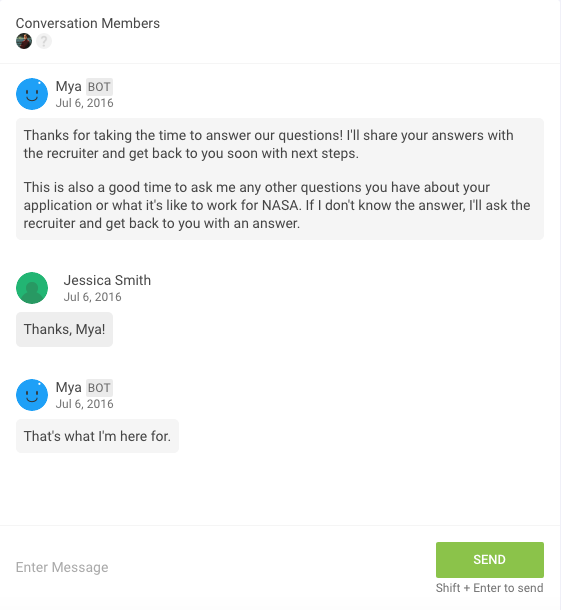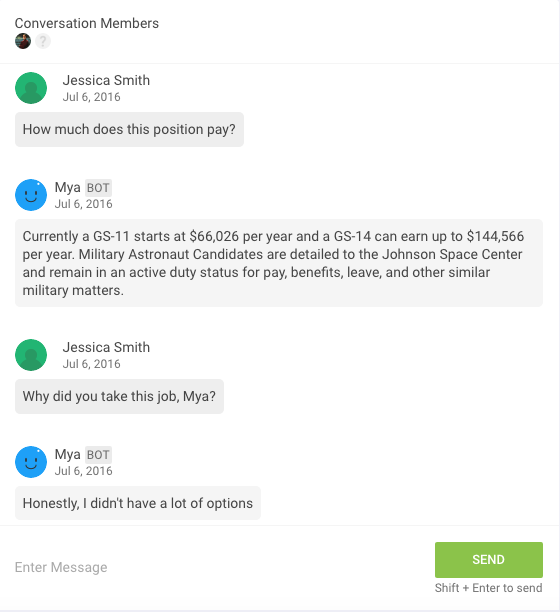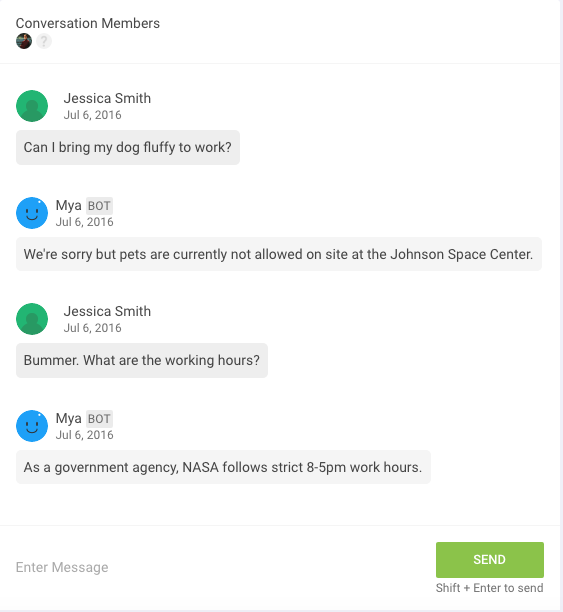
The system uses machine learning and natural language processing to perform an initial screen, answer applicants’ questions, give feedback, and provide suggestions on how an applicant should proceed. Meanwhile, the system gives businesses much-needed breathing room when attempting to qualify large groups of potential candidates.
“[Mya] understands language and is able to answer any question a candidate has about the company, culture, benefits, and even the hiring process,” Eyal Grayevsky, co-founder & CEO of FirstJob, told Digital Trends. “She serves as an ‘always available’ recruiting assistant, delivering that white-glove candidate experience that every company strives for. If Mya doesn’t have an answer to a question, a recruiter jumps in to provide the response. Mya learns from those answers so that a recruiter never has to answer the same question twice, becoming increasingly intelligent and autonomous over time.”
Here’s Mya in action with a mock NASA applicant:
Artificial intelligence might seem like it would undermine the “human” aspect of human resources, but Grayevsky insists that the system won’t depersonalize the recruitment process. Today’s recruiters are often overwhelmed by the sheer quantity of applications, he points out, which leaves many applicants without even a single response from their potential employers. Mya is meant to let companies engage with every applicant.
The system is also designed to be “human-like” but not to deceive candidates. “We make it very clear to the candidate that Mya is an AI bot,” Grayevsky said. “This is reinforced throughout the UI and in her dialogue with each candidate to avoid confusion.” So, the next time you apply for a job at companies like Oracle, Gap, or Fitbit, your first point of contact might actually be an AI.
